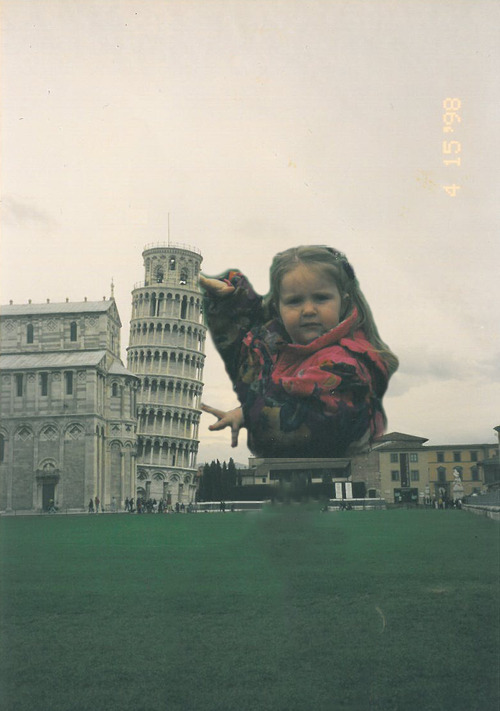Photo


Greeks in Kazakhstan
There are more than 130 nationalities living in the country. Among these nationalities are Greeks, who since Kazakhstan’s early independence years have established their own association under the auspices of the Assembly of the People of Kazakhstan (APK).
Nowadays there are 10-12 thousand ethnic Greeks living in Kazakhstan in 17 communities, which together with the Kyrgyzstan community make up the FILIA (friendship in Greek) Federation of Greek Communities of Kazakhstan and Kyrgyzstan. The Federation prints a small newspaper, organizes dance events, and offers Greek language and dance classes.
And Pavel Feodoridi, president of the Greek Association of Kazakhstan “Filiya” recently sat down with The Astana Times to tell the story of Greek culture and history in the Kazakh steppe.
The Greeks of Kazakhstan are mainly the descendants of Pontic Greeks who were deported there by Joseph Stalin, from southern Russia and the Caucasus region, at first the Crimean Greeks on 1944, under the resolution 5984 of June 2, 1944. then the Caucasus (Georgia and Armenia) Greeks on June 1949, Feb 1950, Aug 1950. The total number of deported persons was about 60000 people. “After WWII there was a second wave of deportees in 1949 and also some from the Stavropol and Krasnodar regions in Russia, Abkhazia and Georgia. These people mostly settled in the southern areas and the Kentau settlement was mostly built by Greeks. Seventy percent of the population of Kentau used to be Greek. There was also a third wave in 1951 from today’s territory of Chechnya, but the numbers were small. Kazakhstan was not ready to receive such large numbers of settlers. There were no proper living conditions and no housing for the newcomers and they were spread out to live with local families. At first, of course, this news was taken as a challenge but afterwards Greeks realised that these people [Kazakhs] were very hospitable, hardworking and had a similar mentality,” said Feodoridi.
Feodoridi explained that the first Greek settlers in Tsarist Russia were mostly tobacco merchants but after the Soviet deportations they were engaged in all areas to literally help build Kazakhstan, as many took up professions in construction and as medics and teachers. Throughout the Soviet years, Greeks were a well-recognised and respected community known for their hard work. They managed to live through the communist Perestroika in the late 1980s, but then in the early 1990s “Greeks started going back to Greece. Although Greece didn’t have a supportive repatriation program, such as the Germans, some 31,000 of them departed for their motherland; 20,000 of them were from southern Kazakhstan, the largest concentrated population at the time,” Feodoridi said.
“In 1993, we established the Greek association based on three communities in Almaty, Shymkent and Taraz. Today, the association counts 17 city communities across Kazakhstan with on average about 10,000 Greeks still living here,” said Feodoridi.
“It is hard to explain. I have been to Greece on numerous occasions. But I must say, we are, perhaps, Soviet people,” he continued. “Greeks in Greece have a different mentality. It was hard to understand them at first, as it was hard to get used to the country in general. My children might want to move but it’s their business and I won’t stop them. But we [the generation born in Kazakhstan] will stay here, this is our home no matter what happens,” Feodoridi said. “… Kazakhstan is a unique place, so many people were deported at one point to the steppes here and all nations got along well with one another and all respected each other. I am sure there are certain cases but it doesn’t reflect the whole situation in the country…”
Source
watch this video about Greeks of Kazahstan
post about Greeks of Uzbekistan
72 notes
·
View notes
Text
I haven't felt this apprehensive in a while.
0 notes
Text
در قلب منی گرچه میان دیگران ام هر جا که روم نام تو آید بر زبانم
4 notes
·
View notes
Photo

The roof and skylight of a Pamiri house in Tashkurgan, Xinjiang, China - near the border of Pakistan. Throughout sections of Pakistan, Tajikistan, China and Afghanistan, followers of the Ismaili faith, a branch of Shia Islam, generally display near identical traditional housing layouts. The four tiered roof represent the four Zoroastrian elements - earth, wind, fire, water.
40 notes
·
View notes
Text
It feels like they stole from us - when Uzbekistan denies Tajik existence in Tajik regions of the country. It feels like they stole a huge part of our culture, our history, and our heritage.
I feel deprived of a big part of my identity. I hate this feeling.
21 notes
·
View notes
Photo

This is so painfully obvious but maybe hard to understand without context so: This sign is in the XinJiang provincial museum, a province of China that is inhibited mainly by the Han (Chinese majority) that only moved there in recent years, especially because the government send them there to control and balance out the second big group, the Uighur, a Muslim ethnic group of Central Asian descent. The Uighur have a different language, culture and religion than any of the other Chinese ethnicities (maybe besides the also Muslim Hui), and long for independence. The Chinese government has made great efforts to put down this Uighur nationalism, with many laws that make it mandatory for Uighur to learn Mandarin (but not for Han to learn the language of the Uighur), making the Burka in public illegal, forcing shops and restaurants to stay open during Ramadan etc. This sign is at the entrance of the permanent exhibition on the history and culture of XinJiang. The culture of the Uighur and other groups prior to the colonization by the Han is not displayed in this exhibition. The ‘unification’ that is refered to is in fact a colonialist act of more powerful ethnic groups (mostly the Han but also the Mongolians and Manchulians in later years) to widen their political and economical power. ‘Inseperable part’ stresses that XinJiang is a part of China then, now and in the future. The text also claims that the Han gave the ‘Western Regions’ (西域, an old term for what is now known as XinJiang) 'economic and cultural development and prosperity’, which is partly true because the Han created the Silk Road which did in fact benefit the region financially, but is an argument often used by the Chinese government to emphasize China’s claim to certain territories while ignoring the fact that the inhabitants of that area didn’t ask for that help and had to pay with a loss of independency and forced assimilation to Han culture. The Chinese government until today claims that the invasion of Tibet by the Red Army in the middle of the 20th century freed them from a suppressive feudal society and gave them prosperity - a point of view that little to no Tibetans share
117 notes
·
View notes
Quote
There was, however, also a very different image of Russia that one could find in Tajik literature during the Soviet period. Russia portrayed as an “evil stepmother” forbade Tajikistan to use the script of its ancestors and ethnic “brothers” (Afghanistan and Iran) by imposing Cyrillic and burning all the books written in the Arabic alphabet, and it made Tajiks fight against their ethnic brothers during the Soviet invasion of Afghanistan from 1979-1989. The reform of the alphabet was part of an anti-religious and “enlightenment” policy from Moscow… An aspect of this reform was the confiscation and burning of books using the Arabic script as well as the incarceration of anyone holding on to these books in their private libraries. Soviet authorities allowed only fragments of Tajik literary heritage to be transcribed into the Cyrillic alphabet. Because of this censorship, the diversity of subjects characteristic of classical Persian-language literature was not reflected accurately. Manuscripts that survived in some private libraries became inaccessible to a new generation of Tajiks who were not acquainted with the old Arabic script. In contrast to a citizen of the pre-Soviet Bukhara khanate, whoódespite not necessarily being capable of writing or readingócould recite poems by renowned Persian writers such as Firdousi, Hafiz, Saadi, Nasir-I Khosrow, and Rumi, which contained important insights on Muslim and Persian-speaking identity, new generations of Soviet Tajiks found themselves “alienated from the whole body of classical written language, from direct sources of knowledge about their own past.”
The Other by Anaita Khudonazar. (via bisharm)
78 notes
·
View notes
Photo

Istanbul, Turkey - Beşiktaş district
11 notes
·
View notes
Text
q-essar shna shna de khaloona and/or adaki mori
salaamona watanwalo
which folk songs do you wanna hear?
2 notes
·
View notes
Text
در آزادترین لحظه هنوز برده عشق فانی ام پیش خدا شرمسار و پیش خود دانی نادانی ام
2 notes
·
View notes






















